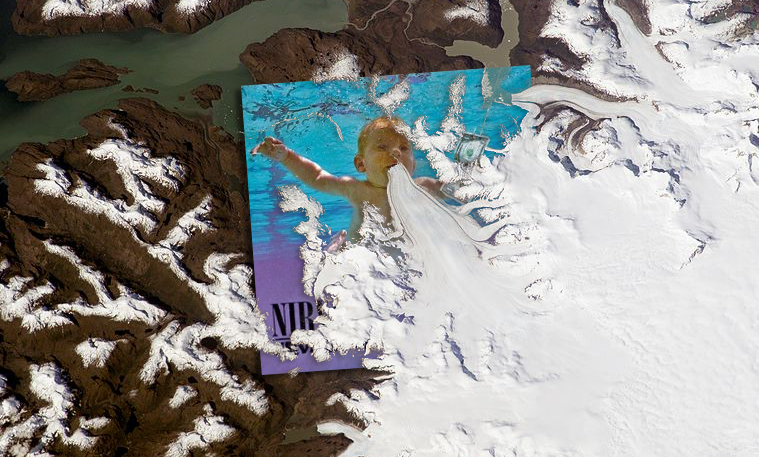“We are probably entering a new ice age right now. However we’re not noticing it due to the effects of carbon dioxide.” — Lars Franzen, professor of physical geography at University of Gothenburg
In other words, man-made global warming is preventing us from entering a new ice age. That’s not to say climate change is a total boon to humanity, but it does suggest a silver lining. What does this intriguing theory, gaining traction in the scientific community as of late, have to do with music?
It’s the first thing that came to my mind when I read about the stabilization of record sales in 2011-2012 in Digital Music News. Metaphorically speaking, without the plummeting price of music, album sales would have continued its downward trend, crashing hard in the last two years.
In other words, with the ‘cultural warming’ of increased free or near-free access to music, we are staving off an ‘ice age’ of decimated album sales.
It’s quite clear to see how free music spurs album sales. Study after study after study confirmed that those who shared illegal downloads also purchased more music as a result.
Now we are awash in near-free music from Spotify, Pandora and the new school of streaming audio — aka the companies fighting to control the operating system of the “celestial jukebox”. Don’t you think it’s pretty astonishing that despite the growth of these services in the market, album sales remain flat?
Album sales have not been saved by music industry litigation, paywalling, DRM, or any attempt by those running the antiquated record album business model to protect it and stifle innovation. Album sales remain stable (or stagnant) because music is approaching free, and as a result, more people are listening to more music than ever before. No matter how hard the industry elite try to bring on a new ice age where they go back to controlling access to music, no one can stop the proliferation of free songs spurring a new generation to a deeper love of music than we have ever seen. But there is a limit to free music spurring album sales. When that limit is reached is as much up to content creators as consumers.
The album itself is anachronistic, we are moving into a world of singles. The album-based business model would melt in front of our eyes if not for the phalanxes of music industry lawyers erecting a stockade of copyright law to protect their walled gardens. Consumers never really wanted to have to buy songs they didn’t like in a bundle with songs they did — that was forced upon them artificially.
The album is also a die-hard tradition for musicians and fans. It’s kind of fascinating how the economic imperative of the album become part of the art of music. Bottom line, fans don’t demand quantity of songs, they demand quality. It is nearly impossible to write 10 consecutive songs of the kind of quality fans demand and deserve — think of how many “perfect” albums you can name. Therefore, the future of music will not necessarily see the disappearance of the album, but a transformation from 10-12 song collections to more varied numbers of songs, more mix tapes and compilations (collaborative albums) and some new concepts like curated licensing, app albums and status-based perk-bundling. (If you want to know more about these, sign my mailing list to get word on when my book will be out.)
Ultimately, the “cultural warming” I talk about transcends any particular revenue stream or business model. Free and near-free access to music also stimulates more music creation. As listening becomes more interactive and creative (music games, remixing stems, mood-based browsing), it will become harder to separate the “musician” from the “listener”. In the end, album sales will begin to decline again as music takes on a different role in society. There will still be “albums” because it’s useful to organize groups of songs under a single title to denote an era or concept, but the bundling of songs will entirely be in the consumer’s control. Increasingly, fans will opt for bundles of the songs they like, rather than being forced to buy songs they don’t, or blindly following tradition.

